Filter by

Inflammatory Pathways in Diabetes: Biomarkers and Clinical Correlates
This book discusses recent advances in new anti- and pro-inflammatory pathways in diabetic disease, and identifies new diagnostic immunological methods that offer potential companion diagnostics for diabetic diseases. New methods in proteomics, mass spectroscopy, immunological assay design, measurement of cellular signal transduction and protease inhibition are used to clarify new biochemical p…
- Edition
- -
- ISBN/ISSN
- 978-3-319-21926-4
- Collation
- XVI, 219
- Series Title
- -
- Call Number
- 571 INF
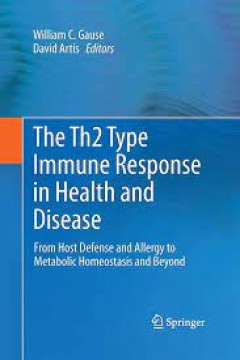
The Th2 Type Immune Response in Health and Disease From Host Defense and All…
The type 2 immune response that develops during infectious disease has undergone major paradigm shifts in the last several years as new cell types and pathways have been identified. It is now clear that the type 2 immune response, characterized by elevations in specific cytokines, including IL-4, IL-5 and IL-13, is associated with helminth infections in both humans and mice. This response is co…
- Edition
- -
- ISBN/ISSN
- 978-1-4939-2911-5
- Collation
- -
- Series Title
- -
- Call Number
- -

Immunology of the Skin: Basic and Clinical Sciences in Skin Immune Responses
This book reviews the role of each cell subset in the skin, providing the basics for understanding skin immunology and the mechanisms of skin diseases. The skin is one of the immune organs and is continually exposed to foreign antigens and external stimuli that must be monitored and characterized for possible elimination. Upon exposure to foreign antigens, the skin can elicit a variety of immun…
- Edition
- -
- ISBN/ISSN
- 978-4-431-55853-8
- Collation
- IX, 510
- Series Title
- -
- Call Number
- 614 IMM

Immune Responses to Biosurfaces: Mechanisms and Therapeutic Interventions
The collection of chapters in this proceedings volume brings together research from academic and industry scientists and clinical development experts who are focused on contemporary and emerging aspects of improving treatments employing biosurfaces. Interactions between biomaterial implants, devices, cell therapies, and whole organ transplants frequently trigger activation of body defense sy…
- Edition
- -
- ISBN/ISSN
- 978-3-319-18602-3
- Collation
- XII, 242
- Series Title
- -
- Call Number
- 571 IMM
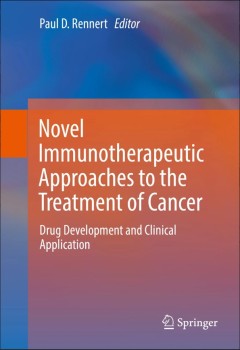
Novel Immunotherapeutic Approaches to the Treatment of Cancer:Drug Developmen…
Cancer care is undergoing a radical transformation as novel technologies are directed toward new treatments and personalized medicine. The most dramatic advances in the treatment of cancer have come from therapeutics that augment the immune response to tumors. The immune checkpoint inhibitors are the best-known and most highly advanced examples of Immune Therapeutics targeting tumor cells and i…
- Edition
- 1
- ISBN/ISSN
- 978-3-319-29825-2
- Collation
- XI, 276
- Series Title
- -
- Call Number
- -
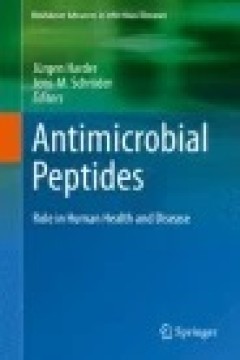
Antimicrobial Peptides: Role in Human Health and Disease
This book focuses on the importance of human antimicrobial peptides (AMP) in keeping the host healthy and preventing infectious diseases. The first chapters deal with several examples of the role of AMP in different epithelial organs (skin and wound healing, eye, lung, genito-urinary tract, gut), which are exposed to different kinds of infectious microorganisms and as a result produce different…
- Edition
- Ed. 1
- ISBN/ISSN
- 978-3-319-24199-9
- Collation
- VI, 158
- Series Title
- Birkhäuser Advances in Infectious Diseases
- Call Number
- 576 ANT a
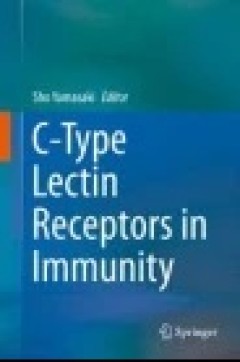
CType Lectin Receptors in Immunity
The book presents the latest findings on C-type lectin receptors, focusing on individual receptors and their signaling. In recent years there have been great advances in the understanding of the function of these receptors as a newly emerging family of pattern-recognition receptors (PRRs) for pathogen-associated molecular patterns (PAMPs) and damage-associated molecular patterns (DAMPs). Compri…
- Edition
- -
- ISBN/ISSN
- -
- Collation
- -
- Series Title
- -
- Call Number
- 616.07
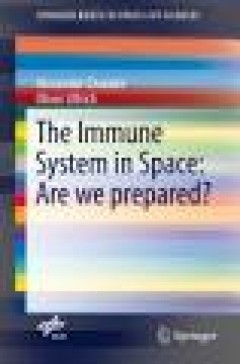
The Immune System in Space: Are we prepared?
This book gives insight into the mechanism of the immune system and the influence of the environment on earth. Further, the book explains the changes that occur in our immune system in the absence of gravity and their fundamental consequences. Several limiting factors for human health and performance in microgravity have been clearly identified as an unacceptable risk for long-term and i…
- Edition
- 1
- ISBN/ISSN
- 978-3-319-41466-9
- Collation
- XVII, 127, 2 b/w illustrations, 13 illustrations in colour
- Series Title
- The Immune System in Space: Are we prepared?
- Call Number
- -
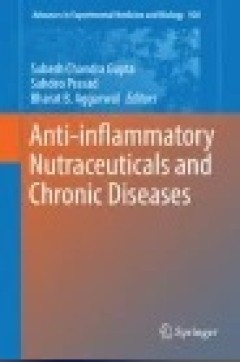
Anti-inflammatory Nutraceuticals and Chronic Diseases
This comprehensive volume focuses on anti-inflammatory nutraceuticals and their role in various chronic diseases. Food and Drug Administration (FDA) approved drugs such as steroids, non-steroidal anti-inflammatory drugs (NSAIDS), statins and metformin have been shown to modulate inflammatory pathways, but their long-term intake has been associated with numerous side effects. This means that the…
- Edition
- Ed. 1
- ISBN/ISSN
- 978-3-319-41334-1
- Collation
- VIII, 482
- Series Title
- Advances in Experimental Medicine and Biology
- Call Number
- 613.2 ANT a
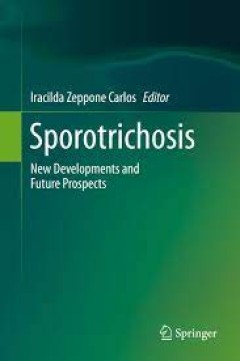
Sporotrichosis New Developments and Future Prospects
The book presents current affairs of Sporotrichosis as emergent disease with emphasis on the potential factors associated with genetic polymorphisms in Sporothrix complex. Constitutive and inducible factors play an essential role in the response of the fungal cell to the environment as determinant in the immunopathogenicity, highlighting clinical forms of Sporotrichosis and host immunocompetenc…
- Edition
- -
- ISBN/ISSN
- 978-3-319-11912-0
- Collation
- -
- Series Title
- -
- Call Number
- -
 Computer Science, Information & General Works
Computer Science, Information & General Works  Philosophy & Psychology
Philosophy & Psychology  Religion
Religion  Social Sciences
Social Sciences  Language
Language  Pure Science
Pure Science  Applied Sciences
Applied Sciences  Art & Recreation
Art & Recreation  Literature
Literature  History & Geography
History & Geography